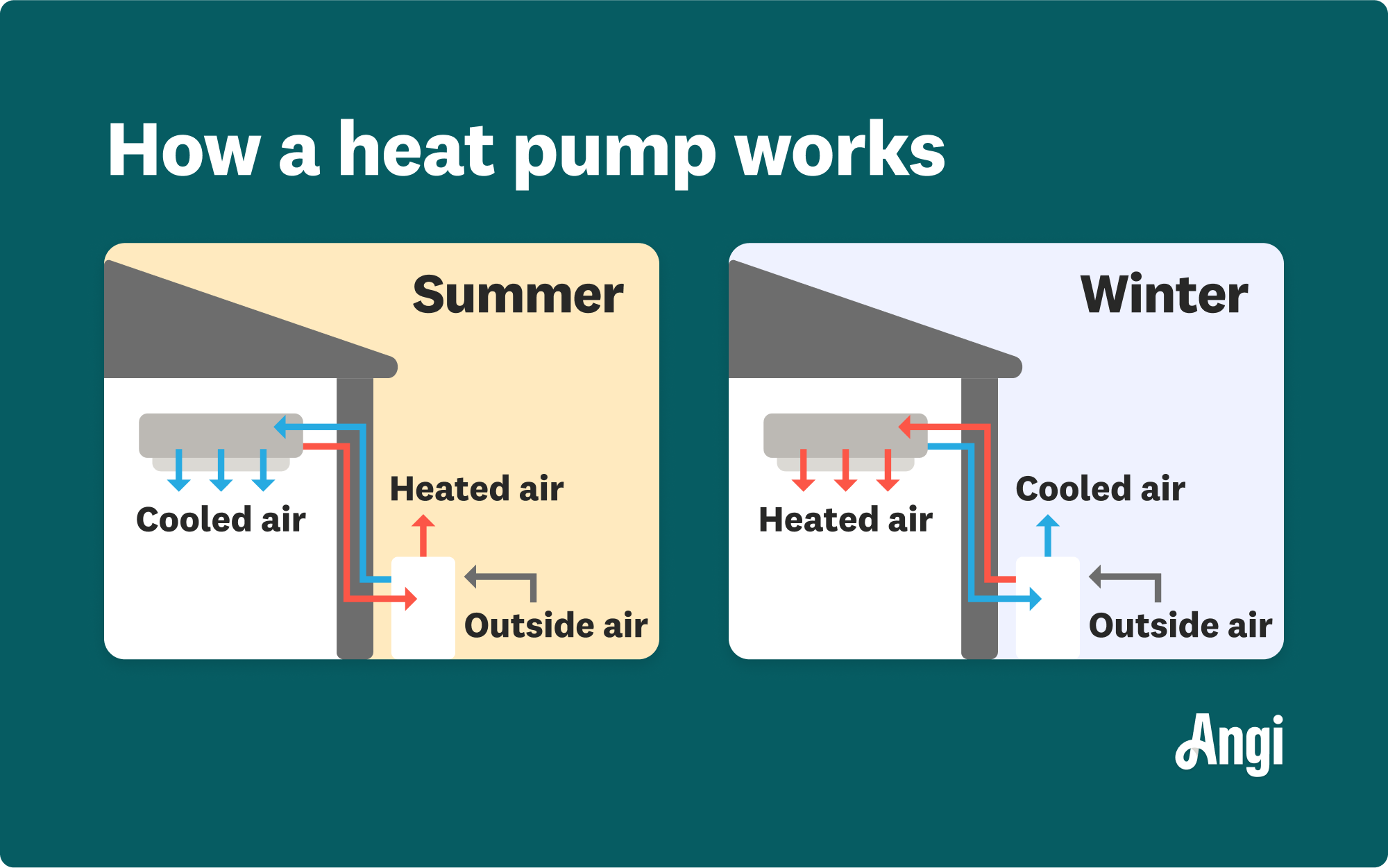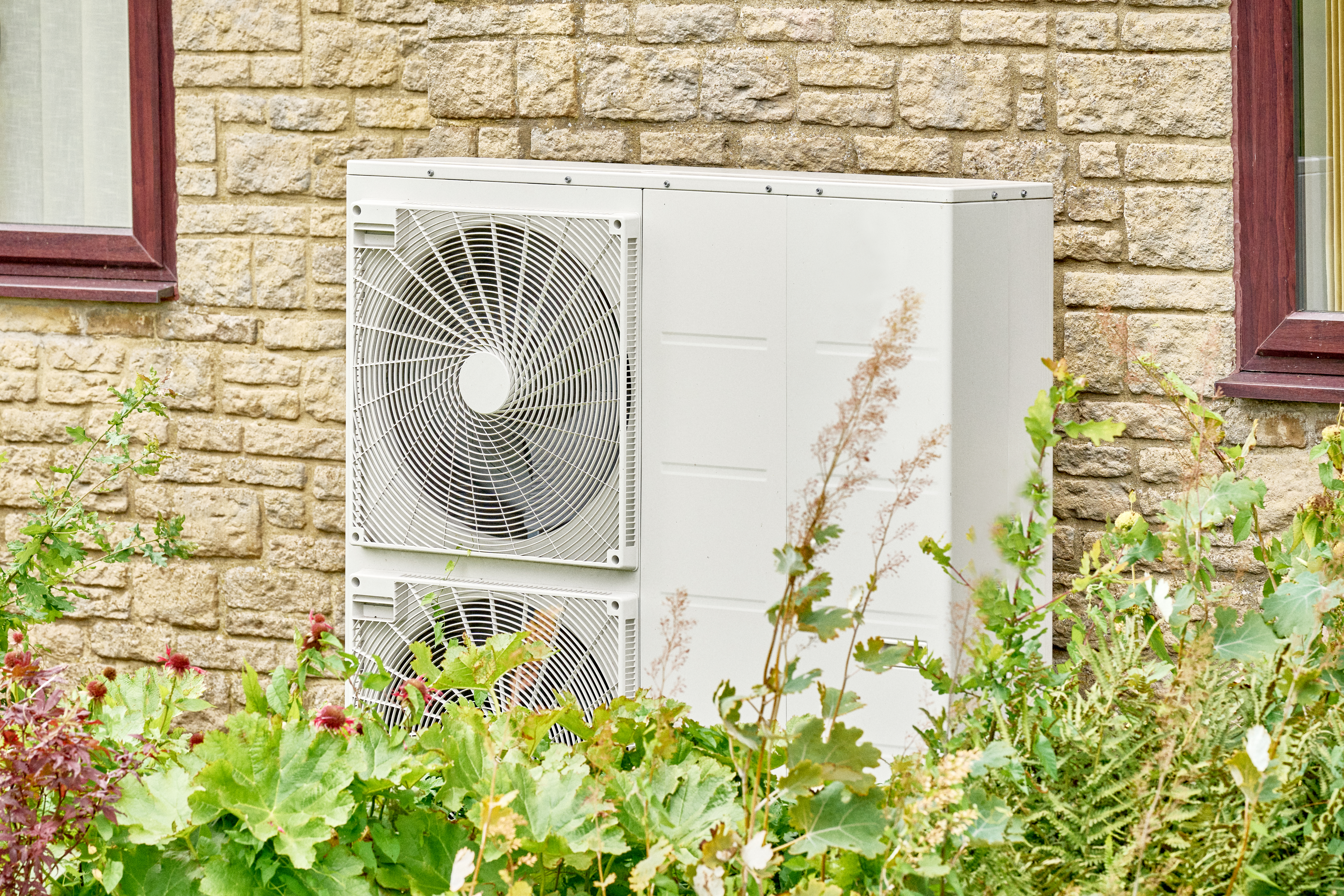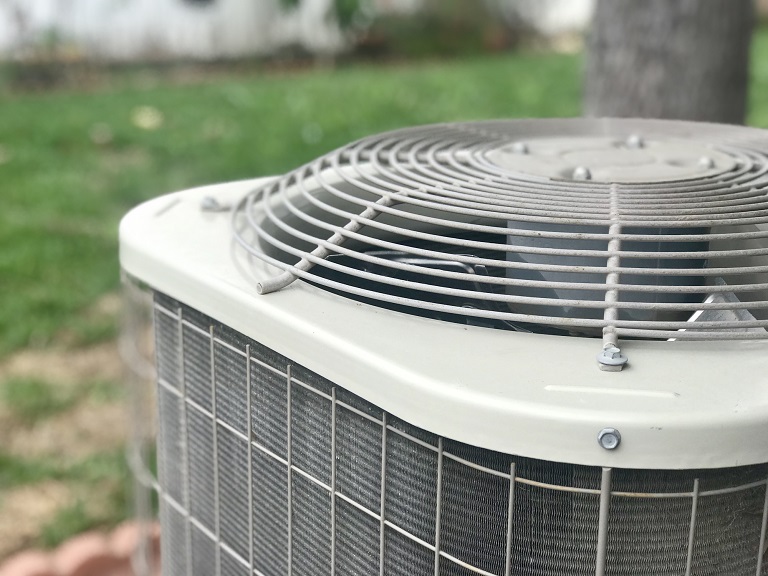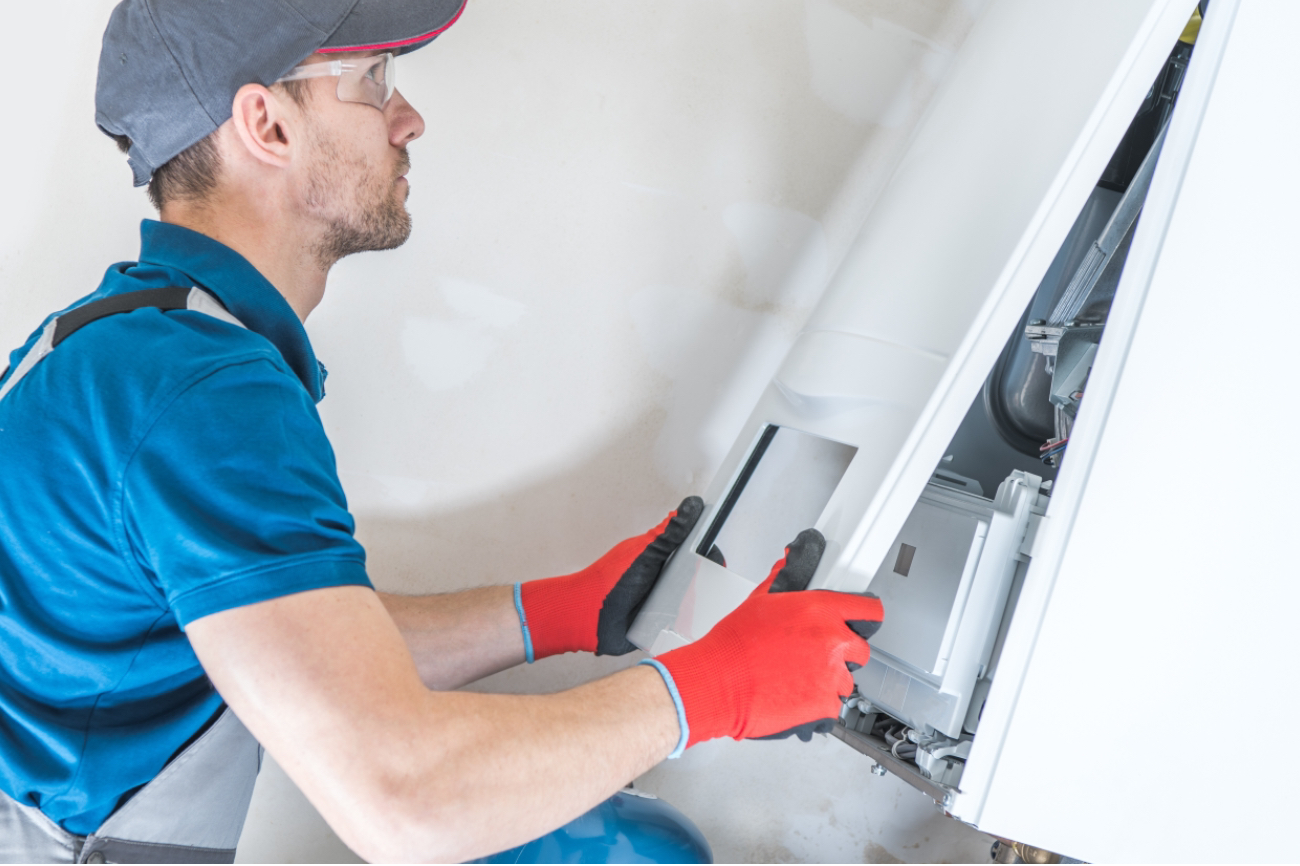
Springing for HVAC maintenance costs may seem like an extra—and easy-to-ignore—item on your checklist, but it will save you money in the long run.
Pump some efficiency into your home


Air-source heat pumps can save up to $1,000 per year on heating costs compared to other forms of heat.
Because air-source heat pumps transfer heat from inside to outside (or vice versa), they can also help keep your home cool when it’s hot outside.
When outside temps are below freezing, these heat pumps will need a secondary source of heat to keep your home warm enough.
Air-source heat pumps are an energy-efficient way to keep your home cozy and comfortable, and they cost less to run than electric or oil heating. But if your winters are a wonderland of snow and ice, this type of heating system may not be able to keep up. Learn more about the pros and cons of air-source heat pumps and how to tell if they’re right for your home.

An air-source heat pump is an HVAC system that moves heat from inside your house to the outside and vice versa, depending on the season (aka, it can both heat and cool your home). It uses air as the source of heating and cooling.
Heat pumps are much more effective at heating your home than electric heating sources, according to the Department of Energy (DOE). They’re also more cost-effective, saving people an average of $459 per year in comparison. And when you compare air-source heat pumps to oil heating, you can save $948 per year, on average.
Although these systems have several benefits, they have some drawbacks, too. Let’s go over the pros and cons of air-source heat pumps to help you decide if they’re the right choice for your home. No matter what you choose, make sure you hire a licensed pro to size your system and install it.
| Pros | Cons |
|---|---|
| Energy efficient | Not effective in extreme cold |
| Adaptable | Higher up-front costs |
| Cleaner indoor air | More expensive than gas |
Here are a few of the advantages of heat pumps.
Air-source heat pumps are a much more energy-efficient way to keep your home comfortable. They generate as much as four times the heat energy that they use in electricity, according to the DOE. They use up to 75% less electricity compared to more traditional electric methods, like baseboard heating.
You can buy air-source heat pumps that integrate with your existing duct system or choose a ductless system if you don’t have ductwork in place already. Heat pumps also let you heat and cool your home with one system instead of relying on separate systems.
Unlike combustible methods of heating, such as oil, air-source heat pumps transfer heat—they don’t burn fuel. That means you won’t have carbon monoxide emissions inside your home.

As effective and efficient as air-source heat pumps can be, they’re not always the right choice. Here are some considerations to keep in mind.
In colder climates like New England, only 3% of homes use heat pumps. That’s partly because these systems can require a secondary heating system in very cold areas. Winterizing and weather-proofing your home can help, and you’ll need to make sure to clear snow from the outdoor unit frequently in snowy weather.
Installing a heat pump costs $6,000 on average. This is more expensive than the cost to install a new furnace, which averages $4,800. However, the energy savings over time can offset these higher up-front costs.
Running a system that depends on electricity, like air-source heat pumps do, costs more than running one that relies on natural gas, such as a boiler and radiator system.
Whether you’re adding a heat pump to an existing or brand-new home, it’s best to hire a professional heat pump installer for this task. A pro will have the right tools, skills, and experience to ensure this essential appliance is set up accurately and efficiently.
Check out some other ways to heat your home, including other heat pump types.
Geothermal heat pumps: These are still heat pumps, but they transfer heat from the ground, not the air. Ground-source heat pumps are more expensive up front than air-source heat pumps but are extremely efficient and reliable.
Dual-fuel systems: Hybrid or dual-fuel systems combine a heat pump with a gas furnace, offering the efficiency of the heat pump in warmer weather while bringing in the gas furnace when temperatures plummet.
Electric heating: Baseboard heaters and radiant floor heating are two forms of electric heating that can keep your space comfortable. However, although they cost less up front, they’re more expensive to run.
Air-source heat pumps can be an excellent choice for keeping your home comfortable, especially if you’re looking for a double-duty solution that can heat and cool. Consider installing a heat pump in these instances:
You live in a mild climate: These systems are best for people who live in mild climates (unless you choose a more advanced cold-climate heat pump, and even those are only designed for temperatures that don’t fall below 5 degrees Fahrenheit).
You’re replacing an inefficient system: If you’re replacing an oil heating system or an electric heating system, the lower running cost of an air-source heat pump will be a pleasant surprise.
Your house is well-insulated: You’ll get the most bang for your buck if your home is already well-insulated. Leaky, drafty homes will see a lot of heat loss, which lowers the efficiency of the heat pump and could wear it out faster.
Still not sure? Talk to a heat pump installer near you. They can help you decide if an air-source heat pump is the right choice for your home.
Very professional, polite and helpful. I would recommend him!
Raven and crew does absolutely fantastic job. They are very professional if any concerns were to occur with any of her work she always took responsibility and finished out with a great job. I have worked with her business for a year and have always been satisfied. Very trusted business and...
I had Ace Fireplace Services install custom chimney caps for my home, and the results are stunning. They fit like a glove and have added a touch of sophistication to my chimney. I can't recommend their services enough.
Precision and professionalism define Custom Paint Jobs LLC. We couldnt be happier.
Very professional and efficient with work. Answered each question I had with great knowledge and an informative response. Will be working with them again.
Window Depot did an amazing job on my deck. I wasnt sure what I wanted to do, but their composite decking was affordable and will last a long time. I am excited to have family over, and I am no longer embarrassed by my backyard. Jeff and the ground crew were polite, respectful, and caring for...
Great tree company, very professional and honest. Glad we found them, they had the best pricing
Maple Tree Service should serve as a mentor for other business! Customer service was superior and beyond expectation. Response to request was prompt. The representative was very courteous and proud of the company. Quote was given during initial visit and work date established. A follow up...
Eugene returned my call within minutes and was able to complete the job within a couple of days. Friendly and professional, and I feel his prices are reasonable.
We used Unique Hardwood Floor LLC three years ago to work on the floors of a 70 year old home that needed a great deal of work. Some floors needed repairs, some were replaced and others just needed to be refinished. It was a complicated job as they needed to blend the old and the new to...
From average costs to expert advice, get all the answers you need to get your job done.

Springing for HVAC maintenance costs may seem like an extra—and easy-to-ignore—item on your checklist, but it will save you money in the long run.

What you’ll pay in Columbus, OH, for furnace repairs depends on many factors. Here’s a breakdown of what can go wrong and the cost to fix those issues.

Discover the true window AC unit installation cost to learn about labor, permits, and ways to save on your window AC project.

Explore the most common HVAC duct types, from flexible to sheet metal to fiberglass, and learn about their pros and cons.

Discover the average air handler replacement cost, including labor and materials, plus expert tips to help you budget and save on your HVAC upgrade.

Discover heat exchanger replacement costs to learn about price factors, labor, and ways to save before hiring a pro or starting your project.